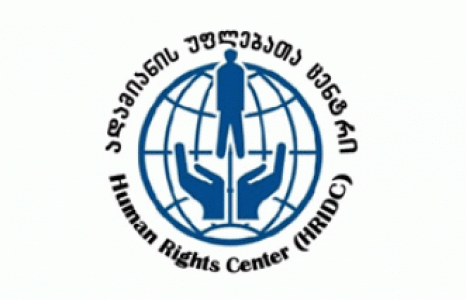Facts of Human Rights Violation in Abkhazia and South Ossetia in the Report of International Federation of Human Rights (FIDH)
October 22, 2014

Several days ago, famous international organization – International Federation of Human Rights (FIDH) published a reportDisputed
Entities in Eastern Europe – Human Rights Sacrificed, which presents human rights situation in five disputed entities of Eastern Europe: Nagorno-Karabakh, Transnistria, Abkhazia, South Ossetia and now Crimea too.
Human Rights Center actively participated in the preparation of the Report and provided FIDH with the information about human rights situation in both conflict-affected regions of Georgia and in the occupied territories of Abkhazia and South Ossetia. Human Rights Center is member of FIDH.
The Report underlines the role of Russian Federation in the current human rights situation in the disputed entities and states that “Russia’s role in fomenting and perpetuating the existence of these entities was and remains crucial. After the fall of the USSR, Russia backed separatist movements in neighboring states, helping them to politically and military maintain at least partial effective control over the territory of the newly proclaimed states.”
According to the FIDH Report, rights to citizenship, free movement, security, adequate living conditions, healthcare and education are most frequently breached in the disputed entities.
“For example, in Abkhazia many citizens have both Russian and Abkhazian passports. However, ethnic Georgian inhabitants of Gali district do not have Abkhazian passports and are therefore considered stateless under the Abkhaz law,” the report reads. “Lack of passports creates barriers for citizens in the enjoyment of right to free movement. Inhabitants face major obstacles when crossing so-called border, which is controlled by Russian soldiers and who create serious problems for the citizens traveling to Georgia, who have neither Abkhazian nor Russian passports and try to cross the ABL. Citizens have to wait at the so-called border.
The report talks about the citizens who have disappeared in the conflict regions: “In Georgia, the problems of missing persons persist, following armed conflicts in 1990s and 2008 war. This problem concerns all conflict parties and is permanently raised during the IPRM (Incident Prevention and Early Response Mechanism) and Geneva meetings. Despite that, about 2000 people are still missing, both military personnel and civilians.”
“Several dynamics intervene in disputed territories that act as a source of human rights violations: the nature of some of the de facto regimes, situations of more or less open conflict and disputes around the status of the entities. Victims have no access to effective remedies and perpetrators enjoy impunity,” – states the report.
FIDH calls on the international society to start conflict resolution through human rights protection.
Human Rights Center
News
December 13, 2023
Ethnic minorities outside the peace dialogue
November 6, 2023
‘Peace’ agenda of political parties
Popular
Articles
February 13, 2024



